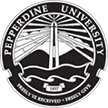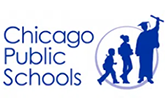Cal Interpreting & Translations (CIT) offers Chechen interpreters and translators with legal, medical and specialty experience, including criminal and civil matters, employee meetings, engineering, patent cases, labor disputes, immigration and more.
Although based in Los Angeles, CIT offers comprehensive Chechen language services including interpretation, translation and transcription, 24 hours a day, 7 days a week, worldwide. Our interpreters and translators are native speakers who have been screened, certified, have provided credentials, field tested, and kept up to date with developments in both English and the Chechen language through means such as lectures, conferences, and travel. CIT’s Chechen language interpreters and translators possess in depth knowledge of the Chechen language, as well as of the culture and history of the Chechen people, allowing them to provide informed and complete interpretation and translation.
The Chechen language, spoken by approximately 1.35 million people, is the primary language of the Republic of Chechnya. Chechnya is part of the Russian Federation. While Russian is the language that is used for a wide spectrum of communication, Chechen is primarily spoken among Chechens. They are still bilingual, speaking both Chechen and Russian. Although Chechen is taught in schools and used in media, the Russian’s understanding of the language is not perfect.
Chechen is part of the Nakh-Daghestanian languages. Chechen is also spoken in Georgia, Germany, Jordan, Kazakhstan, Kyrgyzstan, Syria, Turkey and Uzbekistan. In Chechen, Chechens call themselves Noxchi. The word Chechen comes from the town Cheechan, where the Russians met the first people who spoke Chechen. The language itself has been preserved by certain groups of people who were sent to Dagestan and Georgia in the 40s and 50s. It is also preserved by the descendants of people who were deported in the 1800s to Turkey and Jordan.
Unlike neighboring nations such as Armenia and Georgia, the Chechens do not have their own alphabet. The Chechen language is written with Arabic, Cyrillic, Latin and Georgian alphabets. It was originally written in Arabic in the 150s when Islam was introduced. From the years between 1925 and 1938, it was written in the Latin alphabet. In 1938, the Cyrillic alphabet took over but was replaced again with a new Latin alphabet in 1992. However, after the government was defeated, the Cyrillic alphabet was once again used. In Georgia, the Georgian alphabet can also be used for the Chechen language.
The Chechen language is part of the Vainakh subset of North-Eastern Caucasian languages. They are their own branch and are not related to other languages such as Semitic, Turkic or Indo-Germanic languages. Generally speaking, Chechens are related to the Ingush people, who live close by along with the Bats, who moved to lush valleys in Georgia in the 1500s and became Christians. Additionally, there are the Kists, who came from the Pankisi Valley in Georgia to Chechnya. They have remained Sunni Muslims but have kept their own language.
There are several dialects in the Chechen language. Although it is spoken in many areas in the world, most of the dialects are quite understandable and clear. Some of the dialects are Ploskost (spoken in the central lowland), Itumkala (Shatoi), Melkhin, Kistin, Cheberloi Akkin and Galanchoi.
There are several grammatical elements that make up the Chechen language. There is a complex sound system with many vowels and consonants. Most vowels can be long or short. A longer vowel makes for a different meaning in a word. The Chechen language is an ergative language, meaning objects of transitive verbs and subjects of intransitive words are treated the same. Grammatically, Chechen used agglutination and inflection for grammatical categories.
Nouns in Chechen are marked for case, number and class. The 8 cases of the Chechen language are nominative, genitive, dative, ergative, allative, lative instrumental and comparative. There are also masculine and feminine nouns and ten declension classes. The verb system is intricate, has 34 vowel change classes for regular verbs. There is no solid word order in Chechen as it varies depending on the contextual factor.
The Chechen vocabulary used today comes from Native Chechen or from other neighboring languages such as Russian, Turkic, Georgian, Arabic and Persian.


No matter what your needs may be, we can and are ready to assist you now. We have translators and interpreters standing by 24/7.

CIT's interpreter is such a rockstar, and it’s so great to have him as a lead interpreter for our Board meetings. About Our Interpreters 
Thank you for always being able to handle emergency interpreting assignments with ease. About Urgent Requests 
Thank you for always being able to handle emergency interpreting assignments with ease. About Urgent Requests 
Your translation rates are more competitive than other language service providers I used in the past. About Pricing 

Professionalism matters at CIT. We respond to request inside 24 hours.







